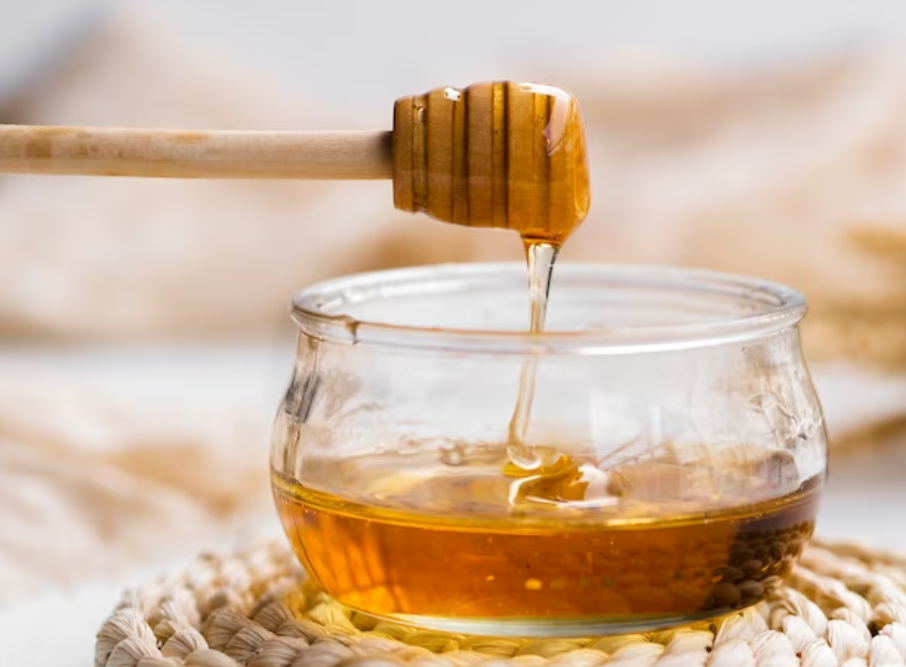The Debate Over Honey’s Vegan Status
People who follow vegan lifestyles have discussed honey’s vegan status. Bees make honey, a naturally occurring sweetener, using nectar from flowers. Since honey doesn’t directly harm animals during production, some vegans argue it may fit into a vegan diet. However, others see it as an animal product, making it unsuitable for a vegan diet.
Honey and Veganism: A Complex Relationship
From a strict vegan perspective, honey isn’t considered vegan. Bees play a role in honey production, and their labour is used to create this sweet substance. Bees gather nectar from flowers and, through regurgitation and evaporation, turn it into honey. During winter, when fewer flowers bloom, bees rely on the honey they store in the hive as food. Taking away the bees’ honey during the harvest could disrupt their normal behaviour.
The Contention
However, some vegans argue that honey can be harvested and consumed responsibly. They believe honey may be considered vegan-friendly if it comes from beekeepers who follow sustainable practices and prioritise the welfare of the bees. These beekeepers provide bees with enough food sources, avoid harmful chemicals, and refrain from actions that harm bee populations. On the other hand, vegans must research their honey and consider the ethical implications and potential harm to bees before consuming it.
The Honey Conundrum: Is It Truly Vegan?
While many consider honey a vegan-friendly sweetener, is it truly vegan? The honey debate has been ongoing in vegan communities for some time. The answer is not as simple as many people may think. While some incorporate honey into their diet, others avoid it, believing it is an animal product, and the process of making it may have ethical consequences.
The Nature of Honey Production
It is essential to remember that honey comes from bees, which makes it an animal product, albeit from insects. Bees mix their saliva with other secretions, including flower nectar, and deposit it in wax combs to create honey. Some vegans believe that bees produce honey for their own sustenance, not for human consumption. Furthermore, removing honey from the hive with a hive tool or using smoke to calm the bees may stress or even kill them.

Ethical Considerations
People have produced and consumed honey for centuries, and it’s important to consider this history. A hive’s capacity to produce honey often exceeds the needs of its colony. In some cases, honey may be consumed responsibly without harming the bees. Many vegans prefer raw honey, sourced locally from ethical beekeepers. Sustainable beekeeping practices are known to have a lower environmental impact than large-scale commercial methods, that benefit both the bees and the beekeepers.
The Vegan Perspective on Honey
Adopting a vegan lifestyle involves considering various factors, including the food we eat. One frequently asked question is whether honey is vegan. Let’s explore the debate surrounding honey and whether it belongs in a vegan diet.
The Vegan Way of Thinking
Vegans aim to eliminate animal products from their diet for moral, environmental, and health reasons. They generally avoid eating dairy, eggs, meat, and other animal-derived products. The primary goals are to reduce animal suffering and encourage compassion for all living beings.
Discuss: Is honey a vegetable?
The question of whether honey is vegan remains controversial. While honey comes from bees, some argue that since bees are exploited during production, honey cannot be classified as vegan.
Bees play a crucial role in pollinating many crops, which helps plants reproduce. However, the methods used in commercial honey production can harm the bees. These practices include removing honey from the hive, using smoke to calm the bees, and replacing honey with sugar water. These actions may leave the bees malnourished.
Additionally, the commercial production of honey often involves selectively breeding bees and altering their natural habitats. This can jeopardise their health, disrupt their normal behaviour, and negatively impact the environment.
Justifications for Honey’s Non-Vegan Status
People who argue that honey is not vegan often cite the mistreatment of bees and the disruption of their natural processes as reasons for avoiding honey. They believe that veganism’s ethics are violated by any form of animal exploitation, regardless of its extent.
Moreover, commercial honey production may negatively affect the environment. The movement of bees, the destruction of land to produce honey, and the use of pesticides can all harm the ecosystem.
Reasons to Support Honey’s Veganism
On the other hand, some vegans argue that if honey is sourced ethically and sustainably, it can still be considered vegan. They believe supporting local beekeepers who prioritise bee health and the environment aligns with vegan values.
These ethical beekeepers use humane methods, allowing bees to keep their honey and avoiding harmful techniques like controlling bee populations through artificial means. Some supporters of honey consumption argue that bees do not have the same level of consciousness as other animals used for dairy or meat. In their view, consuming honey has little impact on animal exploitation compared to other animal-derived foods.

Honey Beliefs in the Community
The question of whether honey is vegan remains a complicated and divisive issue within the vegan community. Deciding whether or not to consume honey is a personal choice, shaped by individual values and beliefs.
For those who follow a strict interpretation of veganism, avoiding honey makes sense due to the potential harm it could cause to bees and the environment. Others may choose to consume honey produced by ethical and sustainable methods, seeing it as more consistent with their vegan principles.
It is important for vegans to have respectful and informed discussions about the morality and impact of honey production and consumption. Ultimately, each person must decide whether to include honey in their vegan diet. Some vegans choose not to consume honey at all, while others opt for raw, locally sourced honey made using environmentally friendly beekeeping practices.
